高中英语人教版必修一Unit 2 English around the world Learning about language课件(31张)
文档属性
| 名称 | 高中英语人教版必修一Unit 2 English around the world Learning about language课件(31张) |
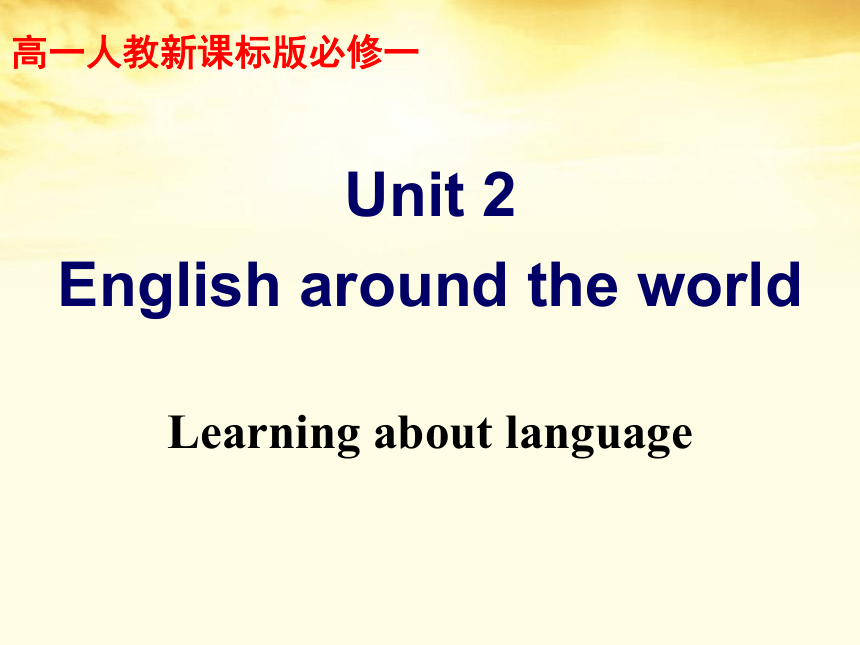
|
|
| 格式 | zip | ||
| 文件大小 | 106.2KB | ||
| 资源类型 | 教案 | ||
| 版本资源 | 人教版(新课程标准) | ||
| 科目 | 英语 | ||
| 更新时间 | 2020-05-08 18:43:22 | ||
图片预览

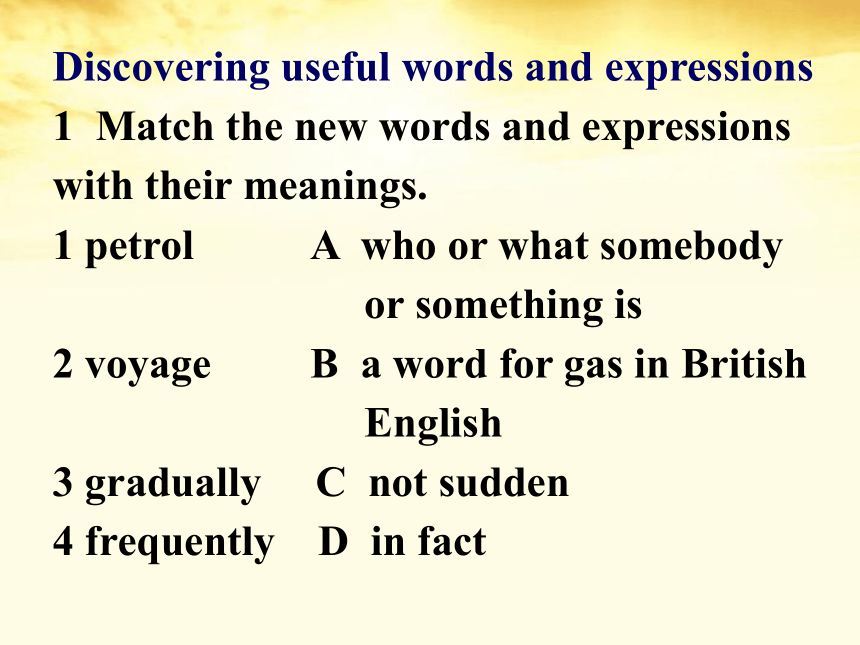
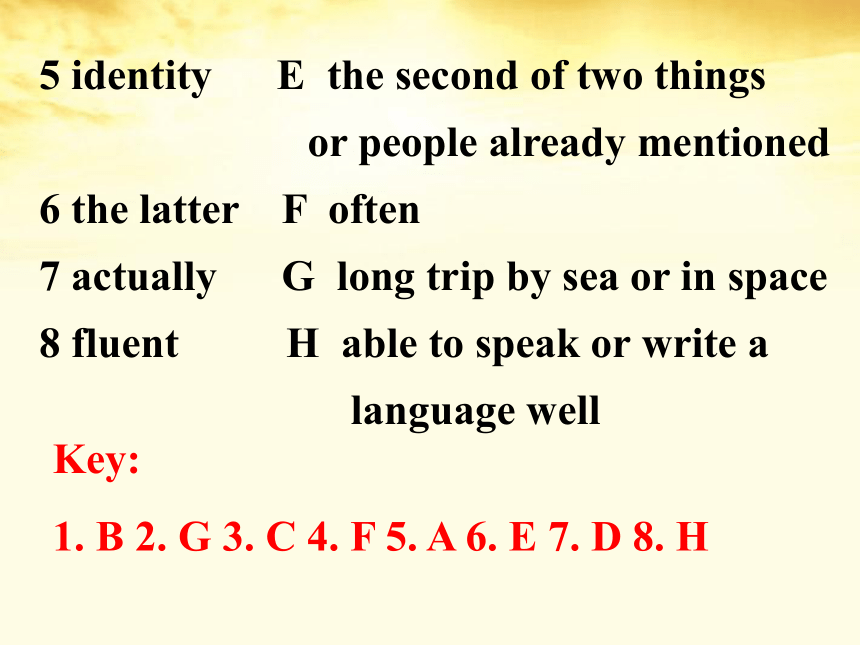
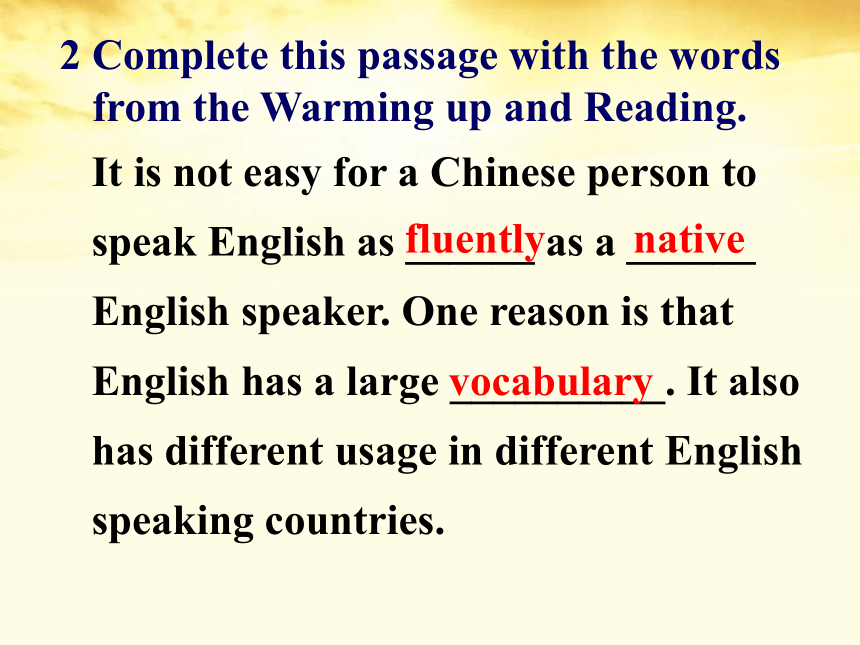
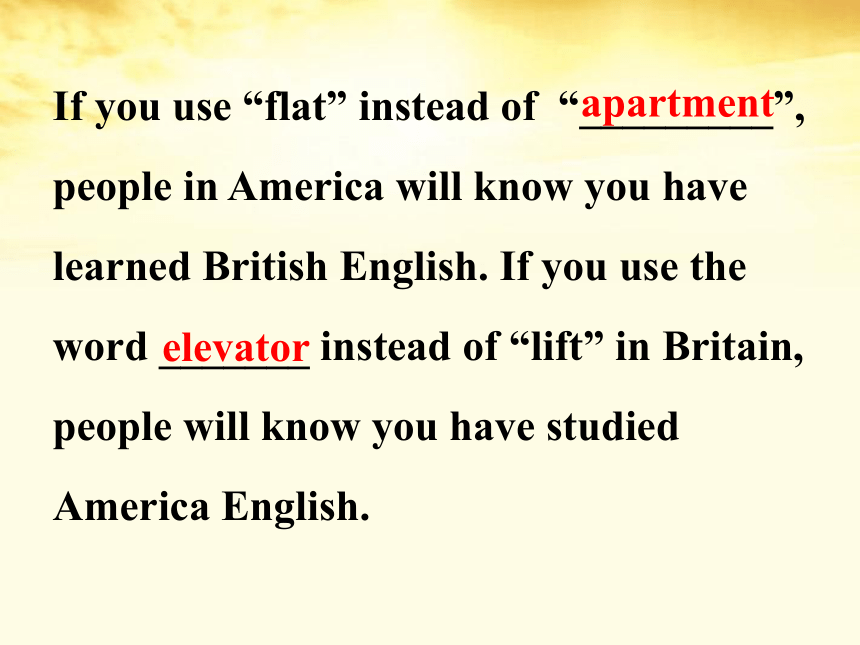
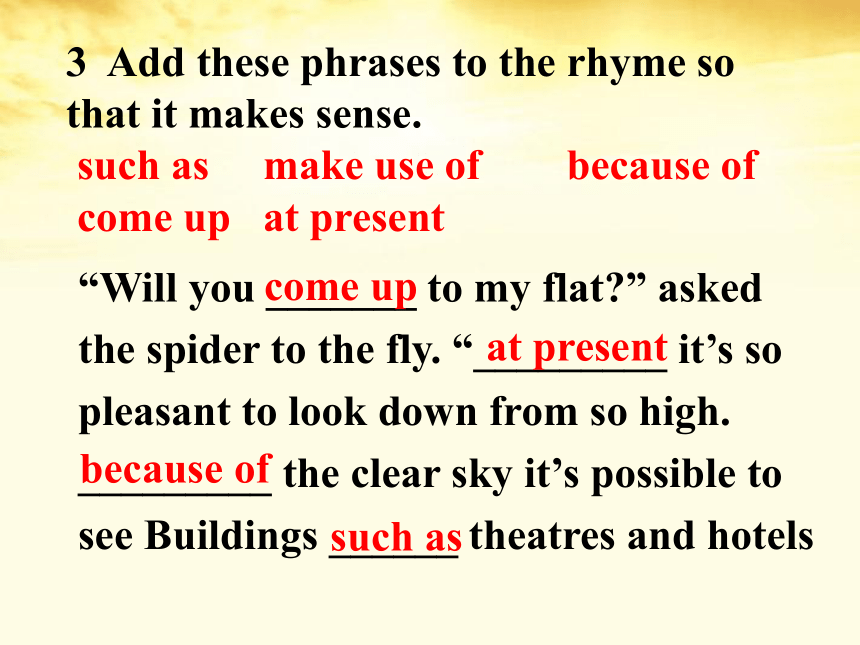
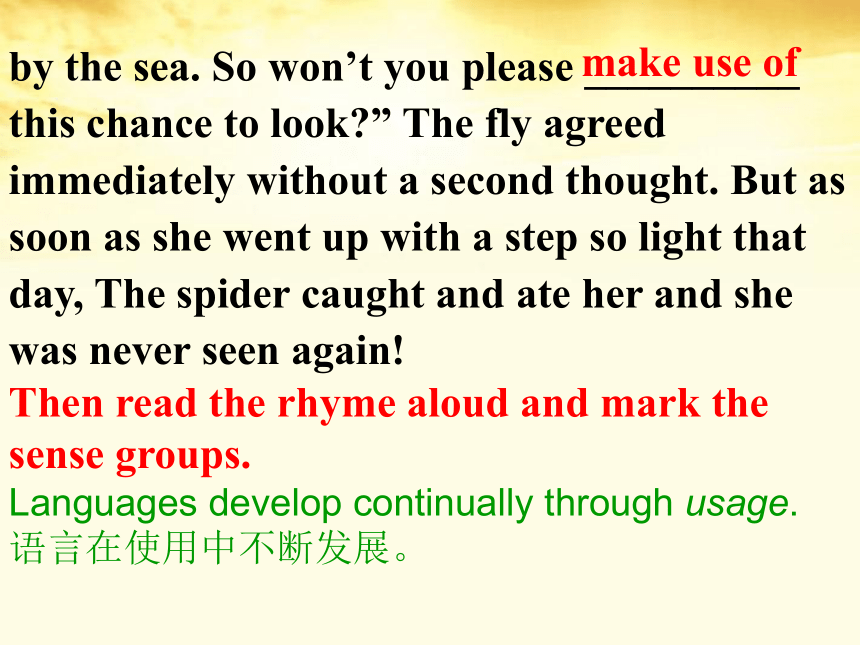
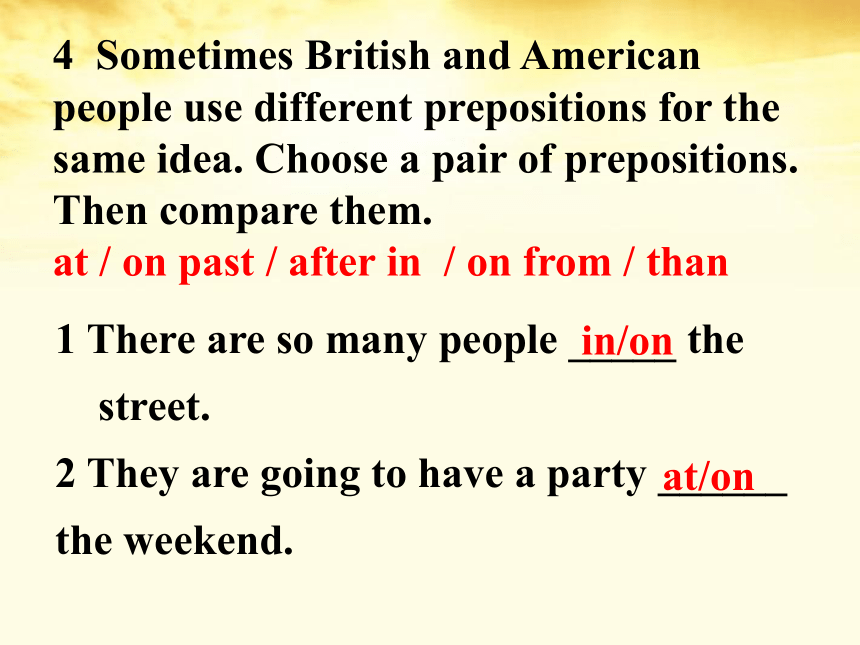
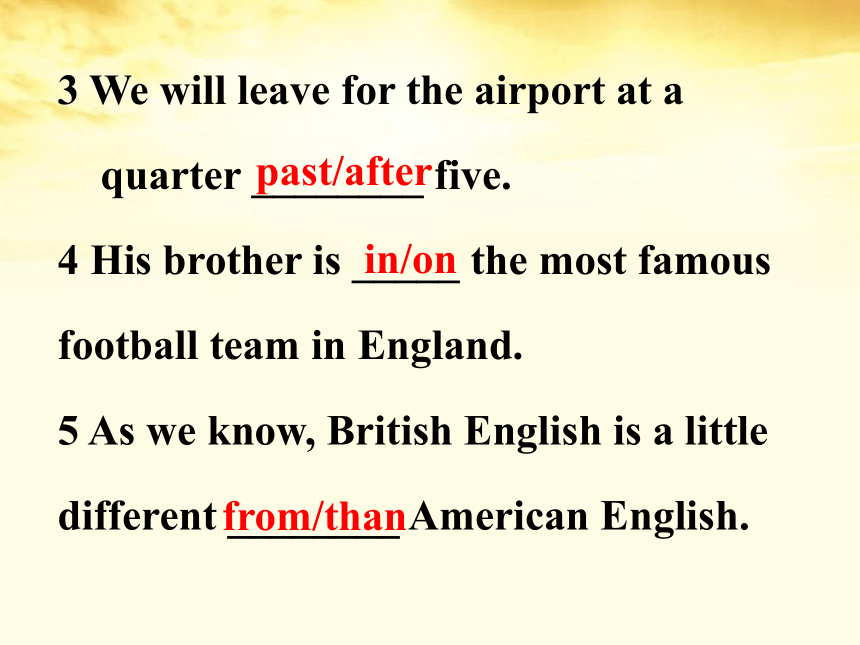
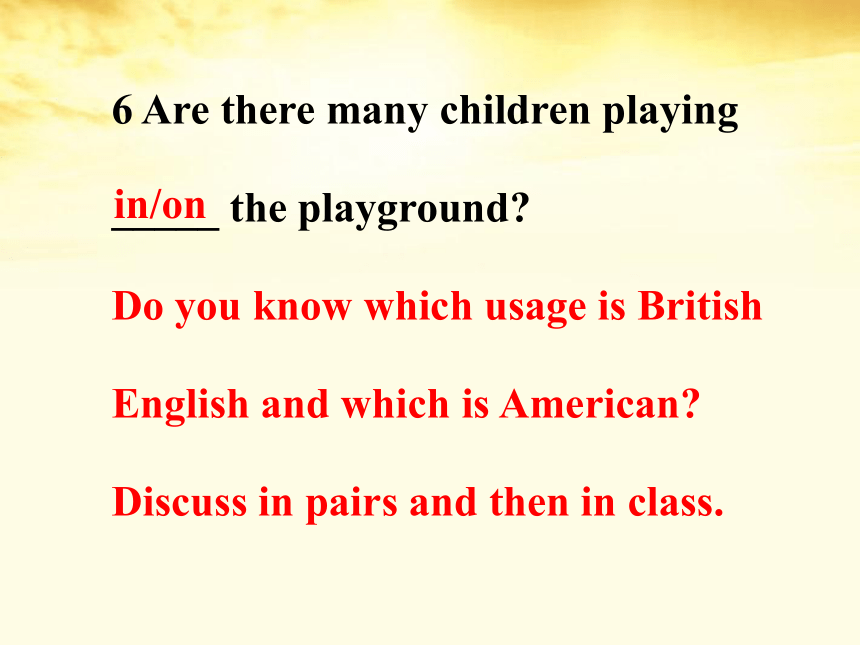
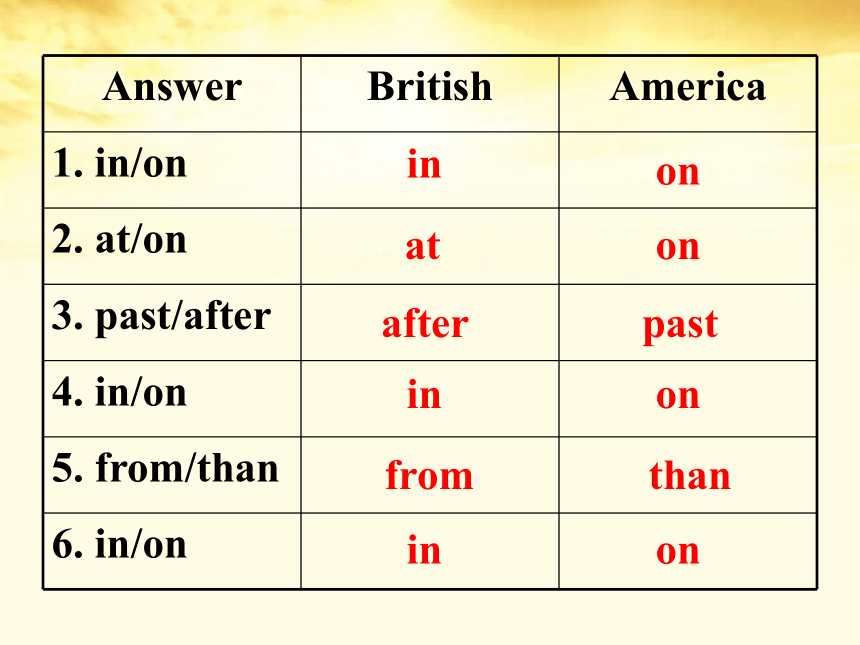
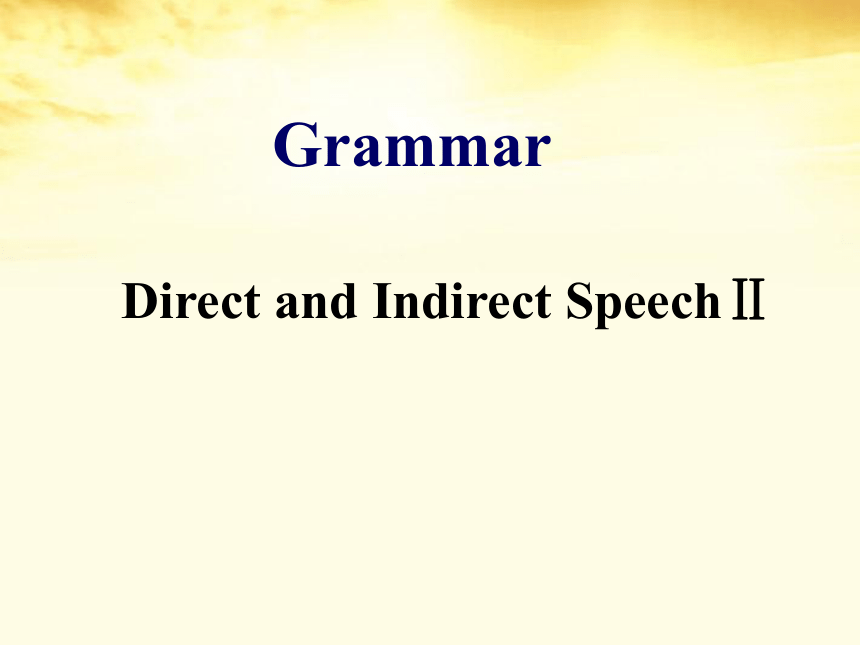
文档简介
(共31张PPT)
Unit
2
English
around
the
world
Learning
about
language
高一人教新课标版必修一
Discovering
useful
words
and
expressions
1
Match
the
new
words
and
expressions
with
their
meanings.
1
petrol
A
who
or
what
somebody
or
something
is
2
voyage
B
a
word
for
gas
in
British
English
3
gradually
C
not
sudden
4
frequently
D
in
fact
5
identity
E
the
second
of
two
things
or
people
already
mentioned
6
the
latter
F
often
7
actually
G
long
trip
by
sea
or
in
space
8
fluent
H
able
to
speak
or
write
a
language
well
Key:
1.
B
2.
G
3.
C
4.
F
5.
A
6.
E
7.
D
8.
H
It
is
not
easy
for
a
Chinese
person
to
speak
English
as
______
as
a
______
English
speaker.
One
reason
is
that
English
has
a
large
__________.
It
also
has
different
usage
in
different
English
speaking
countries.
native
vocabulary
fluently
2
Complete
this
passage
with
the
words
from
the
Warming
up
and
Reading.
If
you
use
“flat”
instead
of
“_________”,
people
in
America
will
know
you
have
learned
British
English.
If
you
use
the
word
_______
instead
of
“lift”
in
Britain,
people
will
know
you
have
studied
America
English.
apartment
elevator
“Will
you
_______
to
my
flat ”
asked
the
spider
to
the
fly.
“_________
it’s
so
pleasant
to
look
down
from
so
high.
_________
the
clear
sky
it’s
possible
to
see
Buildings
______
theatres
and
hotels
3
Add
these
phrases
to
the
rhyme
so
that
it
makes
sense.
such
as
make
use
of
because
of
come
up
at
present
come
up
at
present
because
of
such
as
by
the
sea.
So
won’t
you
please
__________
this
chance
to
look ”
The
fly
agreed
immediately
without
a
second
thought.
But
as
soon
as
she
went
up
with
a
step
so
light
that
day,
The
spider
caught
and
ate
her
and
she
was
never
seen
again!
Then
read
the
rhyme
aloud
and
mark
the
sense
groups.
Languages
develop
continually
through
usage.
语言在使用中不断发展。
make
use
of
1
There
are
so
many
people
_____
the
street.
2
They
are
going
to
have
a
party
______
the
weekend.
4
Sometimes
British
and
American
people
use
different
prepositions
for
the
same
idea.
Choose
a
pair
of
prepositions.
Then
compare
them.
at
/
on
past
/
after
in
/
on
from
/
than
in/on
at/on
3
We
will
leave
for
the
airport
at
a
quarter
________
five.
4
His
brother
is
_____
the
most
famous
football
team
in
England.
5
As
we
know,
British
English
is
a
little
different
________
American
English.
past/after
in/on
from/than
6
Are
there
many
children
playing
_____
the
playground
Do
you
know
which
usage
is
British
English
and
which
is
American
Discuss
in
pairs
and
then
in
class.
in/on
Answer
British
America
1.
in/on
2.
at/on
3.
past/after
4.
in/on
5.
from/than
6.
in/on
in
at
on
after
from
past
than
on
in
on
in
on
Grammar
Direct
and
Indirect
SpeechⅡ
Turn
these
sentences
into
Indirect
Speeches.
1. “Could
you
pass
me
the
salt ”
Mary
asked
me
to
pass
her
the
salt.
2. “Show
me
your
license,
please.”
The
policeman
told
the
driver
to
show
him
the
license.
3.
“Stop
playing
computer
games!”
Mother
ordered
her
child
to
stop
playing
computer
games.
When
we
report
people’s
Requests
or
Commands,
we
use
the
pattern:
ask/
tell/
order
somebody
+
(not)
+
to
do
sth.
用ask/tell/order
somebody
+
(not)
to
do
sth.发出指令或者要求,多用于将直接引语转换成间接引语。在转换中要注意人称的变化及to后的动词要用原形。
Dos
Buy
some
bread
for
her.
He
told
me
to
buy
some
bread
for
her.
Could
you
buy
some
bread
for
her,
please
He
asked
me
if
I
could
buy
some
bread
for
her.
Examples
Don’ts
make
too
much
noise
Don’t
make
too
much
noise.
He
told
me
not
to
make
too
much
noise.
Don’t
make
too
much
noise,
please.
He
asked
me
not
to
make
too
much
noise
.
1:
Open
the
door.
2:
Pass
on
the
book
to
Tom.
3:
Will
you
please
close
the
window
What
is
the
difference
of
the
sentences
Let’s
understand
what
is
a
command
and
what
is
a
request.
1.
Go
to
bed
right
now.
2.
Could
you
help
me
with
my
English
please
3.
Open
the
door
at
once.
4.
Get
away
right
now.
5.
Would
you
please
give
me
that
book
Look
at
the
following
exercises.
Decide
which
is
a
command
and
which
is
a
request.
(C)
(R)
(C)
(C)
(R)
直接引语:主语+动词+“祈使句”
间接引语:主语+动词+to
Verb
He
said
to
me,
“Come
in
.”
He
told
me
to
go
in
。
Li
Ming
said
to
me
,
“Please
open
the
door。”
Li
Ming
asked
me
to
open
the
door。
Mother
said
to
me,
“
Don’t
be
late
again.”
Mother
advised
me
not
to
be
late
again.
祈使句
特别提醒
1.祈使句变为间接引语,主要使用动词不定式。
2.谓语动词要做一定变化。
表示命令,用tell,order,command等。
表示请求,用ask,beg,request等。
表示忠告,用
advise。
Direct
Speech:
(orders):
Do
something….
Don’t
do
something….
(requests):
Do
you…
,
please
Can
you
do…
Could
you…
Will
you
…
Would
you…
Indirect
speech:
Orders:
sb.
told
/ordered
sb.
else
to
do
sth.
sb.
told
/ordered
sb.
not
to
do
sth.
Requests:
sb.
asked
sb.
to
do
sth.
sb.
asked
sb.
not
to
do
sth.
Open
the
window.
Direct
speech
Indirect
speech
Miss
Hu
told
to
open
the
window.
Will
you
please
open
the
window
Miss
Hu
asked
to
open
the
window.
Don’t
open
the
window.
Miss
Hu
told
not
to
open
the
window.
“Write
a
letter
to
your
parents.”
“Don’t
play
games
in
the
classroom.”
“Can
you
pass
on
the
book
to
Tom ”
“Will
you
please
not
smoke
here ”
The
teacher
told
me
to
write
a
letter
….
The
teacher
ordered
me
not
to
play
games
….
The
teacher
asked
me
to
pass
on
…
The
teacher
asked
me
not
to
smoke
there.
Try
to
do
this:
“It
is
a
fine
day.
Let’s
go
to
the
country
for
a
picnic.”
Peter
said
to
me.
Peter
said
that
it
was
a
fine
day
and
asked
me
to
go
to
the
country
for
a
picnic
with
him.
Peter
told
me
that
it
was
a
fine
day
and
let
us
go
to
the
country
for
a
picnic.
1.
Tom
asked
Jack
_____.
A
why
he
was
so
excited
B.
why
was
he
so
excited
C.
why
is
he
so
excited
D.
why
he
is
so
excited
A
考考你
2.
“Have
you
seen
the
film ”
he
asked
me.
→He
asked
me
_______.
A.
had
I
seen
the
film
B.
have
I
seen
the
film
C.
if
I
have
seen
the
film
D.
whether
I
had
seen
the
film
D
3.
“Please
close
the
window,
”
he
said
to
me.
→He
______
me
_____
the
window.
A.
said
to;
to
close
B.
told
to;
closing
C.
asked;
to
close
D.
said
to;
please
close
C
4.
“I
am
a
teacher,
”
Jack
said.
→He
said
___.
A.
that
I
am
a
teacher
B.
I
was
a
teacher
C.
that
he
is
a
teacher
D.
he
was
a
teacher
D
5.
The
teacher
asked
us
____
so
much
noise.
A.
don’t
make
B.
not
make
C.
not
making
D.
not
to
make
6.
Visitors
____
not
to
touch
the
exhibits.
A.
will
request
B.
request
C.
are
requesting
D.
are
requested
D
D
Homework
Review
the
Grammar
rules
--Direct
Speech
and
Indirect
Speech.
2.
Finish
the
exercises
on
WB.
Unit
2
English
around
the
world
Learning
about
language
高一人教新课标版必修一
Discovering
useful
words
and
expressions
1
Match
the
new
words
and
expressions
with
their
meanings.
1
petrol
A
who
or
what
somebody
or
something
is
2
voyage
B
a
word
for
gas
in
British
English
3
gradually
C
not
sudden
4
frequently
D
in
fact
5
identity
E
the
second
of
two
things
or
people
already
mentioned
6
the
latter
F
often
7
actually
G
long
trip
by
sea
or
in
space
8
fluent
H
able
to
speak
or
write
a
language
well
Key:
1.
B
2.
G
3.
C
4.
F
5.
A
6.
E
7.
D
8.
H
It
is
not
easy
for
a
Chinese
person
to
speak
English
as
______
as
a
______
English
speaker.
One
reason
is
that
English
has
a
large
__________.
It
also
has
different
usage
in
different
English
speaking
countries.
native
vocabulary
fluently
2
Complete
this
passage
with
the
words
from
the
Warming
up
and
Reading.
If
you
use
“flat”
instead
of
“_________”,
people
in
America
will
know
you
have
learned
British
English.
If
you
use
the
word
_______
instead
of
“lift”
in
Britain,
people
will
know
you
have
studied
America
English.
apartment
elevator
“Will
you
_______
to
my
flat ”
asked
the
spider
to
the
fly.
“_________
it’s
so
pleasant
to
look
down
from
so
high.
_________
the
clear
sky
it’s
possible
to
see
Buildings
______
theatres
and
hotels
3
Add
these
phrases
to
the
rhyme
so
that
it
makes
sense.
such
as
make
use
of
because
of
come
up
at
present
come
up
at
present
because
of
such
as
by
the
sea.
So
won’t
you
please
__________
this
chance
to
look ”
The
fly
agreed
immediately
without
a
second
thought.
But
as
soon
as
she
went
up
with
a
step
so
light
that
day,
The
spider
caught
and
ate
her
and
she
was
never
seen
again!
Then
read
the
rhyme
aloud
and
mark
the
sense
groups.
Languages
develop
continually
through
usage.
语言在使用中不断发展。
make
use
of
1
There
are
so
many
people
_____
the
street.
2
They
are
going
to
have
a
party
______
the
weekend.
4
Sometimes
British
and
American
people
use
different
prepositions
for
the
same
idea.
Choose
a
pair
of
prepositions.
Then
compare
them.
at
/
on
past
/
after
in
/
on
from
/
than
in/on
at/on
3
We
will
leave
for
the
airport
at
a
quarter
________
five.
4
His
brother
is
_____
the
most
famous
football
team
in
England.
5
As
we
know,
British
English
is
a
little
different
________
American
English.
past/after
in/on
from/than
6
Are
there
many
children
playing
_____
the
playground
Do
you
know
which
usage
is
British
English
and
which
is
American
Discuss
in
pairs
and
then
in
class.
in/on
Answer
British
America
1.
in/on
2.
at/on
3.
past/after
4.
in/on
5.
from/than
6.
in/on
in
at
on
after
from
past
than
on
in
on
in
on
Grammar
Direct
and
Indirect
SpeechⅡ
Turn
these
sentences
into
Indirect
Speeches.
1. “Could
you
pass
me
the
salt ”
Mary
asked
me
to
pass
her
the
salt.
2. “Show
me
your
license,
please.”
The
policeman
told
the
driver
to
show
him
the
license.
3.
“Stop
playing
computer
games!”
Mother
ordered
her
child
to
stop
playing
computer
games.
When
we
report
people’s
Requests
or
Commands,
we
use
the
pattern:
ask/
tell/
order
somebody
+
(not)
+
to
do
sth.
用ask/tell/order
somebody
+
(not)
to
do
sth.发出指令或者要求,多用于将直接引语转换成间接引语。在转换中要注意人称的变化及to后的动词要用原形。
Dos
Buy
some
bread
for
her.
He
told
me
to
buy
some
bread
for
her.
Could
you
buy
some
bread
for
her,
please
He
asked
me
if
I
could
buy
some
bread
for
her.
Examples
Don’ts
make
too
much
noise
Don’t
make
too
much
noise.
He
told
me
not
to
make
too
much
noise.
Don’t
make
too
much
noise,
please.
He
asked
me
not
to
make
too
much
noise
.
1:
Open
the
door.
2:
Pass
on
the
book
to
Tom.
3:
Will
you
please
close
the
window
What
is
the
difference
of
the
sentences
Let’s
understand
what
is
a
command
and
what
is
a
request.
1.
Go
to
bed
right
now.
2.
Could
you
help
me
with
my
English
please
3.
Open
the
door
at
once.
4.
Get
away
right
now.
5.
Would
you
please
give
me
that
book
Look
at
the
following
exercises.
Decide
which
is
a
command
and
which
is
a
request.
(C)
(R)
(C)
(C)
(R)
直接引语:主语+动词+“祈使句”
间接引语:主语+动词+to
Verb
He
said
to
me,
“Come
in
.”
He
told
me
to
go
in
。
Li
Ming
said
to
me
,
“Please
open
the
door。”
Li
Ming
asked
me
to
open
the
door。
Mother
said
to
me,
“
Don’t
be
late
again.”
Mother
advised
me
not
to
be
late
again.
祈使句
特别提醒
1.祈使句变为间接引语,主要使用动词不定式。
2.谓语动词要做一定变化。
表示命令,用tell,order,command等。
表示请求,用ask,beg,request等。
表示忠告,用
advise。
Direct
Speech:
(orders):
Do
something….
Don’t
do
something….
(requests):
Do
you…
,
please
Can
you
do…
Could
you…
Will
you
…
Would
you…
Indirect
speech:
Orders:
sb.
told
/ordered
sb.
else
to
do
sth.
sb.
told
/ordered
sb.
not
to
do
sth.
Requests:
sb.
asked
sb.
to
do
sth.
sb.
asked
sb.
not
to
do
sth.
Open
the
window.
Direct
speech
Indirect
speech
Miss
Hu
told
to
open
the
window.
Will
you
please
open
the
window
Miss
Hu
asked
to
open
the
window.
Don’t
open
the
window.
Miss
Hu
told
not
to
open
the
window.
“Write
a
letter
to
your
parents.”
“Don’t
play
games
in
the
classroom.”
“Can
you
pass
on
the
book
to
Tom ”
“Will
you
please
not
smoke
here ”
The
teacher
told
me
to
write
a
letter
….
The
teacher
ordered
me
not
to
play
games
….
The
teacher
asked
me
to
pass
on
…
The
teacher
asked
me
not
to
smoke
there.
Try
to
do
this:
“It
is
a
fine
day.
Let’s
go
to
the
country
for
a
picnic.”
Peter
said
to
me.
Peter
said
that
it
was
a
fine
day
and
asked
me
to
go
to
the
country
for
a
picnic
with
him.
Peter
told
me
that
it
was
a
fine
day
and
let
us
go
to
the
country
for
a
picnic.
1.
Tom
asked
Jack
_____.
A
why
he
was
so
excited
B.
why
was
he
so
excited
C.
why
is
he
so
excited
D.
why
he
is
so
excited
A
考考你
2.
“Have
you
seen
the
film ”
he
asked
me.
→He
asked
me
_______.
A.
had
I
seen
the
film
B.
have
I
seen
the
film
C.
if
I
have
seen
the
film
D.
whether
I
had
seen
the
film
D
3.
“Please
close
the
window,
”
he
said
to
me.
→He
______
me
_____
the
window.
A.
said
to;
to
close
B.
told
to;
closing
C.
asked;
to
close
D.
said
to;
please
close
C
4.
“I
am
a
teacher,
”
Jack
said.
→He
said
___.
A.
that
I
am
a
teacher
B.
I
was
a
teacher
C.
that
he
is
a
teacher
D.
he
was
a
teacher
D
5.
The
teacher
asked
us
____
so
much
noise.
A.
don’t
make
B.
not
make
C.
not
making
D.
not
to
make
6.
Visitors
____
not
to
touch
the
exhibits.
A.
will
request
B.
request
C.
are
requesting
D.
are
requested
D
D
Homework
Review
the
Grammar
rules
--Direct
Speech
and
Indirect
Speech.
2.
Finish
the
exercises
on
WB.
